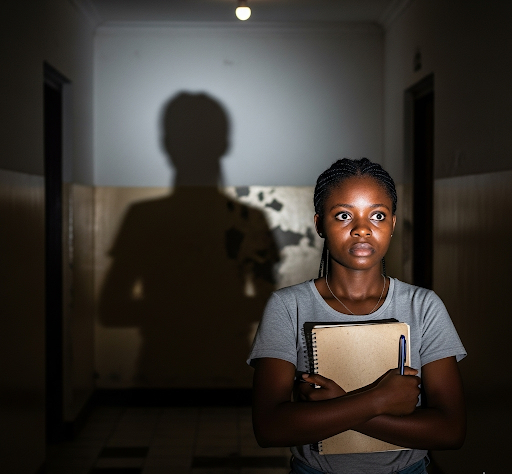Chapter 1: The Quiet House
The Adebanjo family home was never truly quiet, with Lagos traffic, neighbors’ generators, and children playing football in the street making sure of that. But inside the walls of their two-story building, silence reigned in an almost haunting way. Conversations had become short, greetings reduced to nods, and dinners were eaten with the clinking of spoons being the only soundtrack.
For Ayo, the eldest son, silence wasn’t peace. It was a weight pressing on his chest, a reminder of the unspoken words his parents refused to say.
Chapter 2: The Rift
It all began two years ago when his father lost a large investment. His mother had warned against it, but he insisted. When the money vanished, so did their laughter. Arguments turned into cold avoidance, and avoidance hardened into silence.
Ayo’s younger sister, Bisi, often asked, “Why doesn’t Daddy talk to Mummy anymore?” No one answered her.
Chapter 3: The Breaking Point
One evening, during yet another mute dinner, Bisi slammed her spoon down and cried, “I can’t take this quiet anymore!” The room froze. Even the hum of the generator seemed to pause.
Her words echoed what Ayo had been feeling for months. The silence wasn’t protecting them — it was destroying them.
Chapter 4: When Silence Spoke
The next day, Ayo gathered courage. “Daddy, Mummy, this silence is louder than your fights. If you don’t speak, we will all drown in it.”
For the first time in months, their parents looked at each other — really looked. His father’s lips trembled, his mother’s eyes filled with tears. Words followed, raw and shaky, but words nonetheless. Apologies spilled out, confessions tumbled, and wounds reopened.
And in that fragile moment, the silence finally broke.
Epilogue
Years later, Ayo would remember that night. He realized silence can carry two meanings: peace or destruction. In his home, it had been the latter, until courage forced words back into the room.
Sometimes, the loudest cries are not screams but the silence between them.







